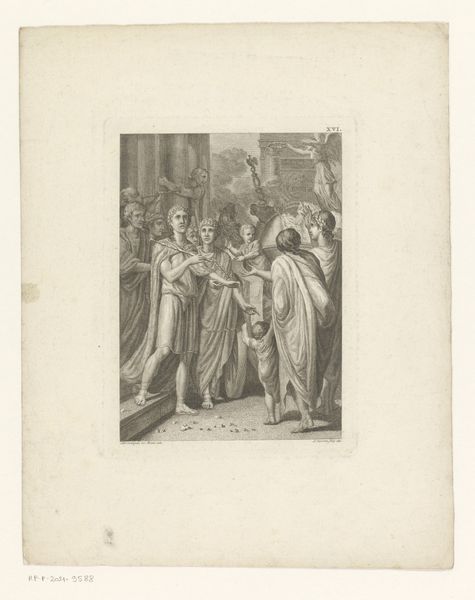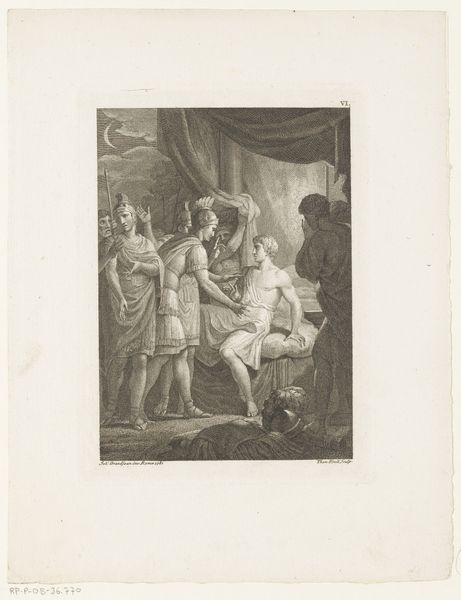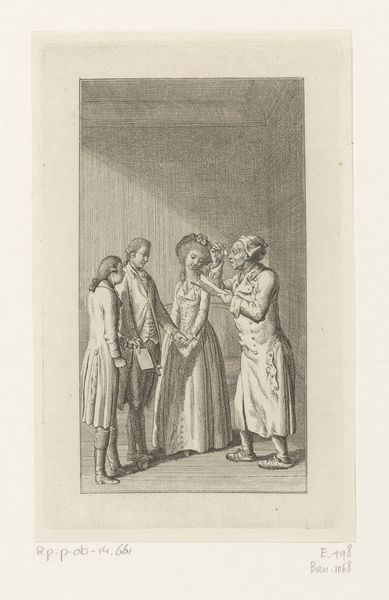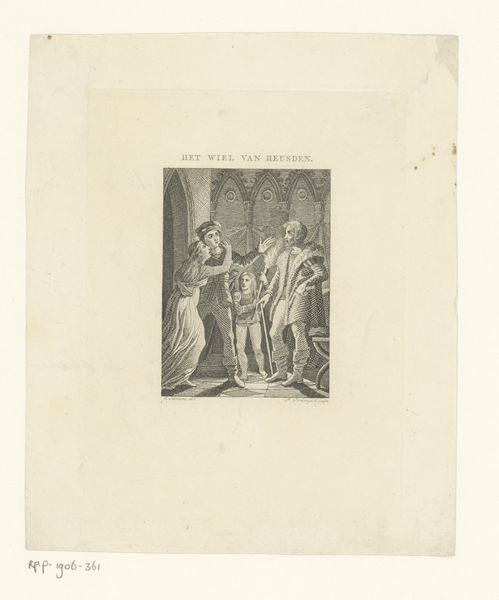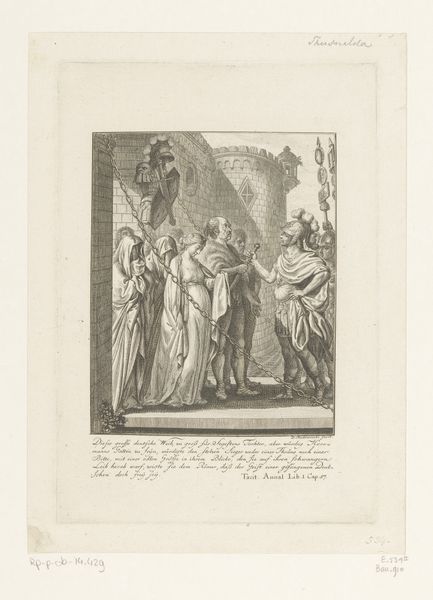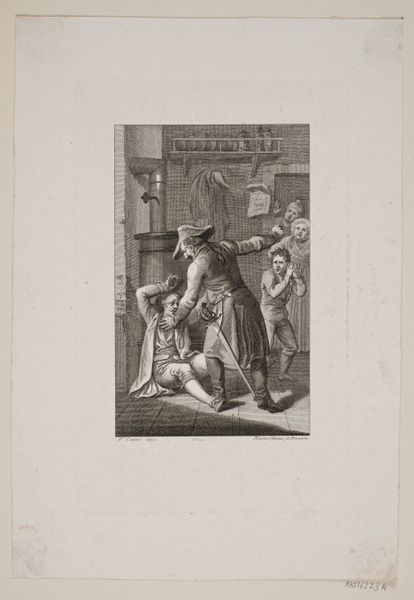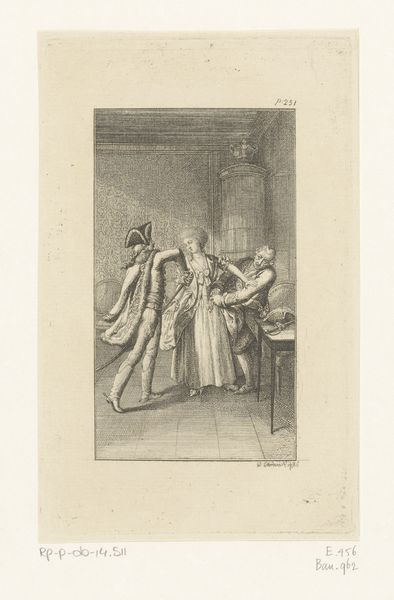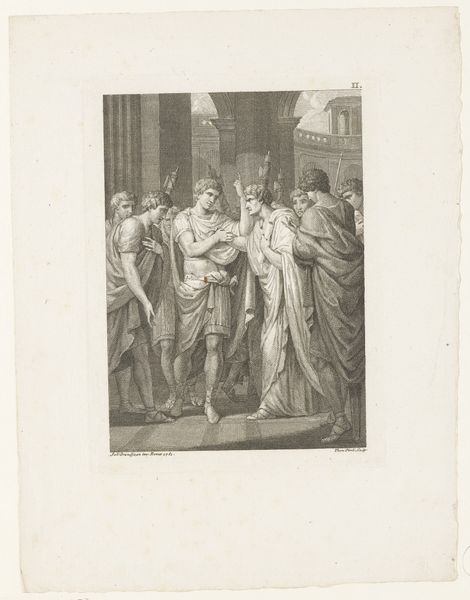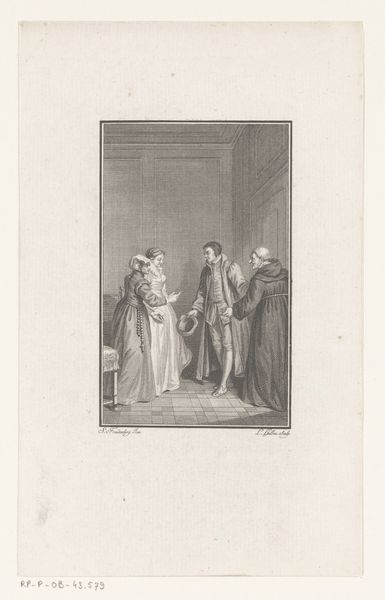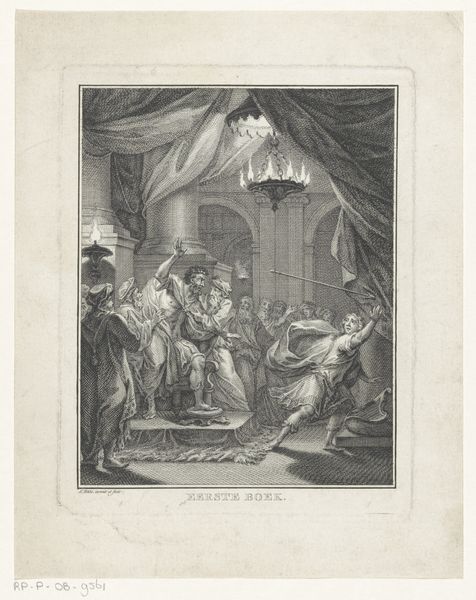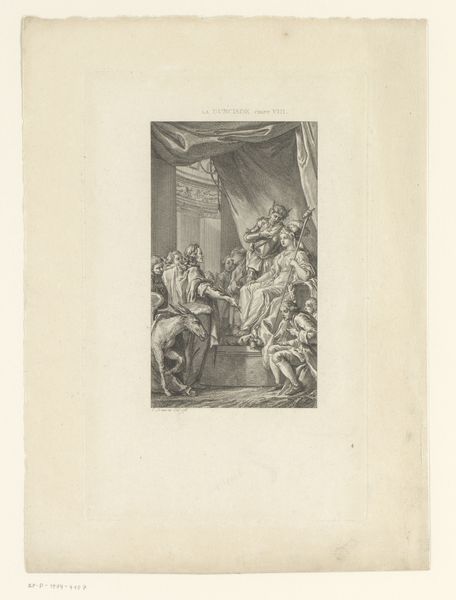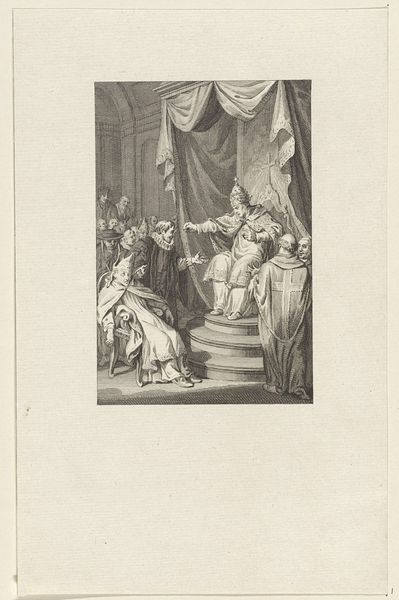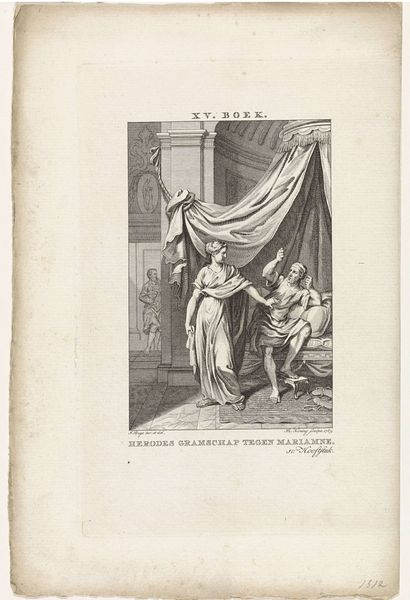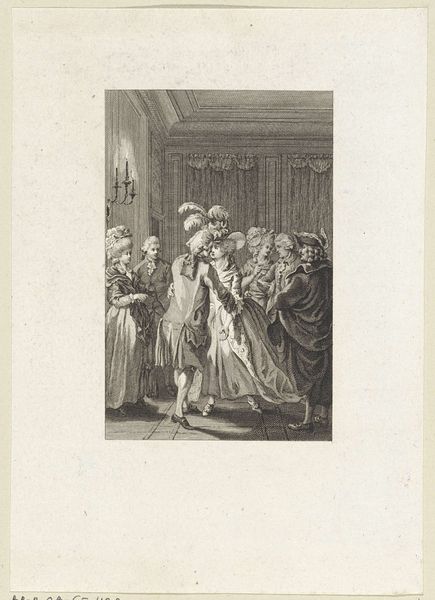
print, engraving
#
neoclacissism
#
narrative-art
# print
#
classical-realism
#
figuration
#
history-painting
#
engraving
Dimensions: height 189 mm, width 142 mm
Copyright: Rijks Museum: Open Domain
Curator: Here we have "Germanicus takes leave of his wife and child," an engraving after 1781 by François Morel. The scene depicts a Roman general saying goodbye, presumably before battle. Editor: My first impression? It's intensely restrained. Almost frozen in time, like a marble frieze but on paper. Even the shadows feel… polite. Curator: Polite is an interesting word. The scene, pulled from ancient history, uses neoclassicism to create a sense of moral rectitude. It's less about emotional outburst and more about stoic duty and civic virtue, you know, the kind thought of as virtuous during and after the enlightenment. Editor: True. It's a curated emotion, wouldn't you say? Each figure strikes a pose, even the child. Almost as though it is on the cusp of a stage play about public ideals, maybe with dramatic hand gestures. It almost lacks spontaneous grief. Curator: That lack is deliberate. Think about the period, how art academies promoted these heroic narratives as examples. It’s not just an historical image, it’s a statement. I mean it may well imply a specific idea, such as loyalty to a king and state; after all, this print appeared some time after the end of the reign of terror. Editor: Makes one think about propaganda, I think. But also how deeply personal stories become tools. Does it romanticize sacrifice, or simply present it? Maybe its aim to instill ideals of obedience for the ruling powers that commission it. Curator: Well it also idealizes Roman virtue, doesn't it? The engraving reduces all conflict, whether personal, physical or political, to absolute clarity: one uniform tonality and level of contrast. It could just as well been sculpted rather than painted. Editor: And somehow, that uniform perfection... it diminishes the weight of their impending separation. A scene rendered in pure grays without sharp contrasts gives me mixed signals! It almost normalizes such grief and impending disasters. Curator: Maybe its muted grief invites contemplation instead of emotional rawness? To me this piece really says something about how political ideology can subtly affect aesthetics, creating art that feels powerful but somehow…distant. Editor: Agreed. I come away pondering on the politics of emotion as much as Germanicus’s farewell. It is a piece made not for the heart necessarily, but definitely for the head.
Comments
No comments
Be the first to comment and join the conversation on the ultimate creative platform.
